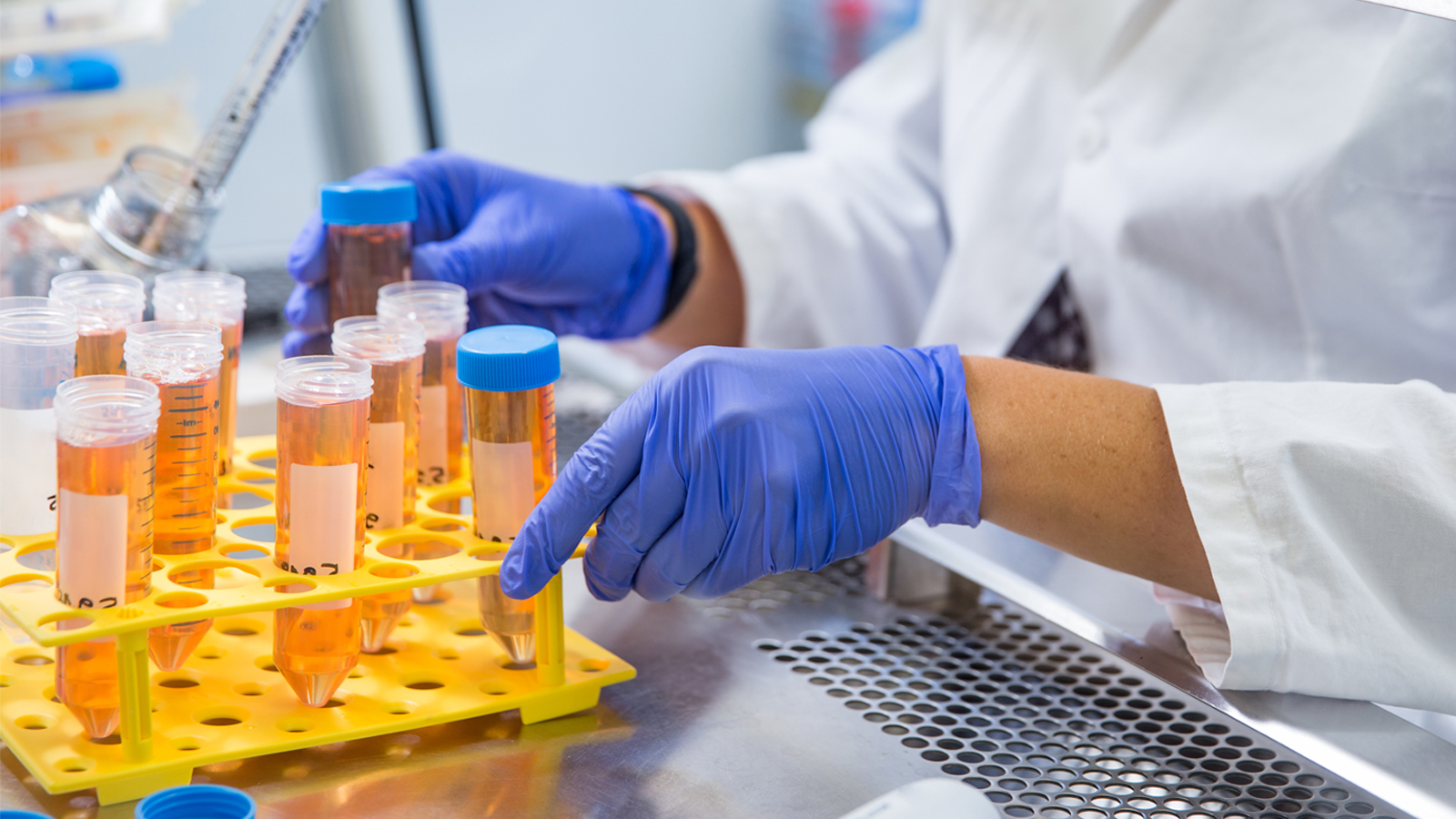Biosimilar expansion: New competition for Stelara in 2025
Several biosimilars for the blockbuster immunology drug are set to launch in the U.S. next year

The market for biosimilar drugs continues to expand. Targeted therapies for patients with autoimmune disease and inflammatory conditions continue to dominate the near-term pipeline. New legislation could enable more competition. The Senate unanimously passed a bill that seeks to limit the number of patents biologic drugmakers can introduce,1 which would ease the path to market for biosimilar products.
The state of biosimilars
61 total FDA-approved biosimilars2
38 covering 16 different drugs3
As we move forward, it is essential to recognize that biosimilars play a growing role in changing health care and, ultimately, improving patient access to life-changing therapies. With patents on many biologics slated to expire in the coming decade, the role of biosimilars will continue to be a defining factor for affordability and accessibility.
Spotlighting Stelara
A blockbuster biologic drug from Johnson & Johnson, Stelara launched in 2009 to treat certain autoimmune conditions such as psoriasis and psoriatic arthritis. Stelara works by blocking inflammation proteins called IL-12/23 and is usually given as an injection under the skin. For Crohn's and ulcerative colitis patients, the first dose is an IV infusion.4
It's been Johnson & Johnson’s top-selling drug since 2019. But at around $13,000 for one syringe, it's also expensive.
Eight biosimilars to Stelara are expected to launch starting next year, creating competition in the United States for the first time. As we saw with Humira biosimilars, educating members and providers about the clinical efficacy and safety of these products will be crucial to help ensure a smooth transition to more affordable alternatives.
As the pipeline evolves, digital tools and automation enable proactive outreach to prescribers based on their preference (EHR, eFax) and would allow them to change a prescription with a single click. Meanwhile, Real-Time Benefits information allows prescribers to review – and select – relevant, lower-cost covered options right at the point of prescribing.
Stelara biosimilars in the pipeline
New products pending launch in 2025
Our pipeline refers to biosimilars that are either pending U.S. Food and Drug Administration (FDA) approval or FDA-approved and excludes drugs in the clinical trial phase.
| Drug Name | Manufacturer | Administration | Approval / PDUFA Date | Dosage Form & Strength | Indications | Projected launch date |
Wezlana (ustekinumab-auub) | Amgen | Injection-IV/SC | Approved 10/31/2023 | SC: prefilled 45mg & 90mg IV:130mg/26ml single-dose vial | Plaque psoriasis Psoriatic arthritis Crohn’s disease Ulcerative colitis | 1/1/2025 |
Selarsdi (ustekinumab-aekn) | Alvotech/Teva | Injection-SC IV/SC | Approved SC 4/16/2024 Approved IV/SC 10/18/24 | SC: 45mg & 90mg single-dose prefilled syringe IV:130mg/26ml single-dose vial | SC: Plaque psoriasis Psoriatic arthritis IV/SC: Crohn’s disease Ulcerative colitis | 2/21/2025 |
Pyzchiva (ustekinumab-ttwe) | Sandoz/Samsung Bioepis | Injection-IV/SC | Approved 6/28/2024 | SC: prefilled 45mg & 90mg | Plaque psoriasis Psoriatic arthritis Crohn’s disease Ulcerative colitis | 2/22/2025 |
Otulfi (ustekinumab-aauz) | Fresenius Kabi/Formycon | Injection-IV/SC | Approved 9/27/2024 | SC: 45mg and 90mg single-dose prefilled syringe | Plaque psoriasis | 2/22/2025 |
Imuldosa (ustekinumab-slrf) | Accord BioPharma, Inc./Intas Pharmaceuticals/Dong-A ST | Injection-IV/SC | Approved 10/10/2024 | SC: 45mg & 90mg single-dose prefilled syringe IV: 130mg/26ml single-dose vial | Plaque psoriasis | 5/15/2025 |
Celltrion | SC | Pending approval 12/30/2024 | SC: 45mg & 90mg | TBD | 3/7/2025 | |
Ustekinumab | Biocon | SC | Pending approval 12/29/2024 | SC: 45mg & 90mg | TBD | 2/22/2025 |
Ustekinumab | Bio-Thera Solutions | SC | Pending approval 5/24/2025 | SC: 45mg & 90mg | TBD | 2Q 2025 |
Beyond Stelara, the robust pipeline includes several drugs slated to hit market next year. Brands with pending biosimilars that we’re watching for cost saving opportunities and impact include:
Solaris (eculizumab), generating $1.77B in annual sales
- treatment of rare blood diseases paroxysmal nocturnal hemoglobinuria and atypical hemolytic uremic syndrome
Simponi (golimumab), generating $1.19B in annual sales
- treatment of rheumatoid arthritis, active psoriatic arthritis, and active ankylosing spondylitis
Understanding the impact of biosimilars for optimizing plan coverage, formulary
Within the evolving biosimilar landscape there’s new opportunity for covering these therapies under the pharmacy benefit vs. the medical benefit – or covering them under both. As yet, nearly all biosimilars launched in the United Sates have been infused therapies administered by health care providers and billed under the medical benefit, a complex and costly process.
Following the wave of Humira biosimilars in 2023, new entrants include self-administered therapies, which are filled by a specialty pharmacy under the pharmacy benefit, a more efficient and cost-effective alternative. We continue to support the best use of biosimilars in both benefit settings.
Additionally, some biosimilars receive an interchangeability designation from the FDA, meaning that pharmacists can independently substitute the biosimilar for the reference biologic – similar to how generic drugs can be substituted for brand drugs. Interchangeability can expedite patient changes from a reference biologic to a biosimilar more quickly and easily.
It's important to note that as of publication, the FDA is proposing to ease interchangeability rules, and legislative efforts are also being considered to remove the interchangeability designation entirely. These steps would help combat marketplace confusion about the safety and efficacy of biosimilars, support biologic drug competition, increase patient access to biosimilars, and lower health care costs for patients.5
With or without interchangeability, formulary strategy will be critical for ensuring appropriate biosimilar adoption, improving member experience, and delivering significant savings for clients and members. When considering biosimilars for our commercial formularies, we focus on:
- Clinical appropriateness and efficacy
- Product attributes, like drug formulation and delivery mechanism
- Availability and reliability of the supply chain to meet demand
- Price
CVS Caremark has a unique ability to support the market in moving to lower cost, clinically appropriate alternatives. We will continue to leverage the power of our connected enterprise to optimize the impact of biosimilars, reducing costs for clients and increasing affordability for members.
Discover additional insights
-
-
2 https://www.fda.gov/drugs/biosimilars/biosimilar-product-information
-
3 RxPipeline, CVS Health Clinical Affairs information. Pipeline Services, August 2024
-
4 https://www.jnj.com/media-center/press-releases/janssen-announces-u-s-fda-approval-of-stelara-ustekinumab-for-the-treatment-of-adults-with-moderately-to-severely-active-ulcerative
-
5 https://www.fda.gov/drugs/news-events-human-drugs/safety-outcomes-when-switching-between-biosimilars-and-reference-products
© 2024 CVS Health. All rights reserved. 3865211 [111824]
This document contains references to brand-name prescription drugs that are trademarks or registered trademarks of pharmaceutical manufacturers not affiliated with CVS Health.

